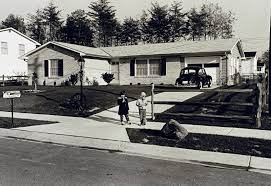INTRO TO REAL ESTATE INVESTING
Types of Property Deeds

If you're investing in real estate, you need to understand what a deed is, how they work, and what the different kinds are. A property deed is a document used to transfer ownership of a real estate asset from one party to another. When dealing with real estate, there are four main types of deeds. Each type of deed differs in the warrants (guarantees) that it gives to the buyer. Some deeds favor the seller, while others favor the buyer. Regardless of which position you're in it's important to understand the differences so you can minimize the amount of risk you're taking.
General Warranty Deed
General warranty deeds are the most common types of deeds. They are used to transfer fee simple ownership, which means full ownership of the land and buildings without any limitations other than local zoning ordinances. General warranty deeds are the best option for a buyer because it guarantees the seller has the full title and it protects you against anyone who might try to make a claim against the title after you have purchased the property. Additionally, it promises that the title will be transferred without any defects, liens, or encumbrances. If you are a buyer, you should require a general warranty deed in almost all cases.
Special Warranty Deed
A special warranty deed offers less protection for a buyer than a general warranty deed. As a buyer, if someone tries to sell you a special warranty deed, you should be cautious about closing the deal. A special warranty deed only guarantees that the seller has acquired the title and hasn't done anything to impair it. But it makes no guarantees about anything that may have happened before it came into the seller's possession. A special warranty deed does not protect you from someone who claims the title is theirs after you have purchased the property. This limited protection is why most people should not accept a special warranty deed as part of a standard real estate transaction.
One exception when it may be ok to accept a special warranty deed is if you are buying a foreclosure property. Often, public officials selling the title use a special warranty deed because they don't know the history surrounding the title and can't guarantee that it was free and clear of defects before they acquired it.
One exception when it may be ok to accept a special warranty deed is if you are buying a foreclosure property. Often, public officials selling the title use a special warranty deed because they don't know the history surrounding the title and can't guarantee that it was free and clear of defects before they acquired it.
Bargain and Sale Deed
A bargain and sale deed indicates that the seller holds the title and can transfer ownership, but it offers no guarantees to the buyer. The seller or any past owner may have impaired the title or another person may have a valid legal claim to the title, but a bargain and sale deed won't protect you from these situations.
To make this type of deed safer and more favorable to the buyer, you can add covenants to the deed. Adding specific provisions to the contract can make it function similar to a general warranty deed. In some states like New York, it is common to use a bargain and sale deed with additional covenants in place of a general warranty deed.
To make this type of deed safer and more favorable to the buyer, you can add covenants to the deed. Adding specific provisions to the contract can make it function similar to a general warranty deed. In some states like New York, it is common to use a bargain and sale deed with additional covenants in place of a general warranty deed.
Quitclaim Deed
A quitclaim deed has no promises or warranties of any kind and is the riskiest type of deed for an investor. With a quitclaim deed, the seller transfers whatever ownership they may or may not have in the property. It is the riskiest type of deed and shouldn't be used to purchase real estate.
While quitclaim deeds shouldn't be used to buy or sell real estate, they are helpful in some circumstances. For example, quitclaim deeds are beneficial when needing to transfer title between family members in particular situations. Such as during a divorce or when parents want to transfer title to a child. Additionally, quitclaim deeds may be used to clear up title issues. For example, if an issue arises where another person may have a claim against a title, that person can sign a quitclaim deed to ensure the buyer has full ownership of the property.
While quitclaim deeds shouldn't be used to buy or sell real estate, they are helpful in some circumstances. For example, quitclaim deeds are beneficial when needing to transfer title between family members in particular situations. Such as during a divorce or when parents want to transfer title to a child. Additionally, quitclaim deeds may be used to clear up title issues. For example, if an issue arises where another person may have a claim against a title, that person can sign a quitclaim deed to ensure the buyer has full ownership of the property.
Elements of a Property Deed
Now that we've examined the differences between the different types of deeds let's investigate the elements they have in common:
- Must be in writing
- Must specify both the grantor (seller) and the grantee (buyer)
- Must contain a legal description of the property
- Must contain words of conveyance (a clause that states the grantor intends to convey the title to the grantee)
- Must be signed by the grantor
- Acknowledgment by notary
Do I need Title Insurance?
Regardless of the type of deed you are using, if you are purchasing real estate, title insurance is recommended. Title insurance is a one-time upfront fee you pay during the purchasing process that helps protect you from claims against your property. Purchasing any piece of real estate requires a significant investment, and it makes sense to protect that investment with title insurance.


